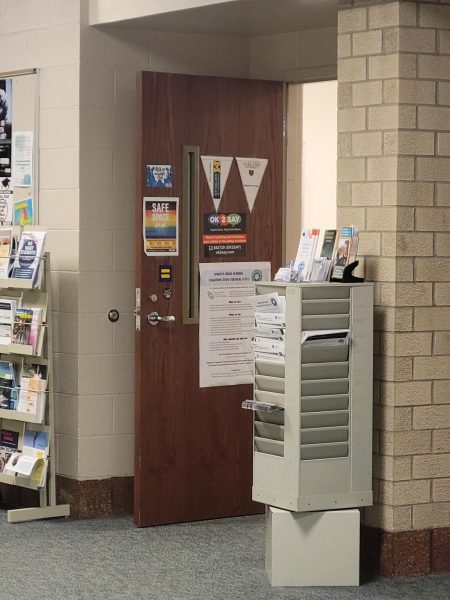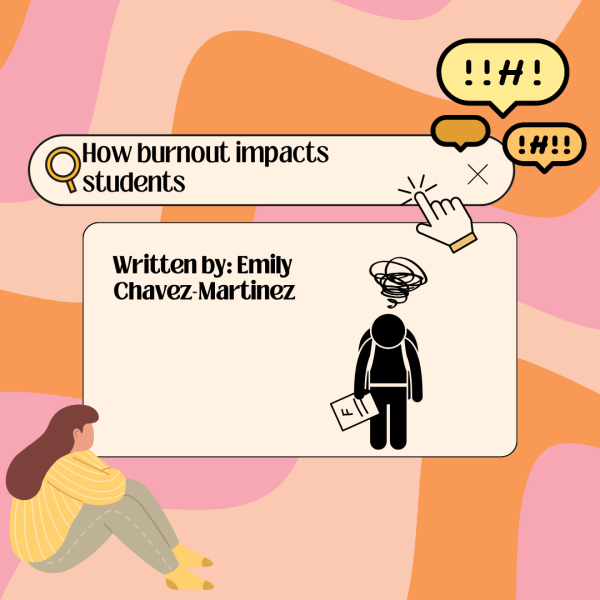Climate Change: How Does It Effect You?
The reality behind our choices and why we should care.
Most of us are aware of how our planet’s climate is changing. We have all seen the protests against pollution, chemicals, and even fossil fuel staged across the globe, as well as green initiatives. Remember those middle school contests to make the best poster and slogan about “going green”? We rarely think about how our failing climate might affect us or our community. We also do not think enough about how we can play an important role in making the changes needed to have a planet that can sustain our population and keep supplying what we need for future generations.
With that said: what is climate change? According to Oxford Languages, climate change is “a change in global or regional climate patterns, in particular a change apparent from the mid to late 20th century onwards and attributed largely to the increased levels of atmospheric carbon dioxide produced by the use of fossil fuels.” To put it simply, it is the increase of global temperatures due to greenhouse gas emissions, specifically water vapor (H20), methane (CH4), carbon dioxide (C02), nitrous oxide (N20), and other fluorinated gases. These gases are released from fossil fuels, large industries, and fertilizers, which are then trapped in the atmosphere, effectively creating a “blanket” that prevents heat from escaping earth (Ozbayrak, O., et al., ‘A research on high school students’ knowledge related to global warming’). In turn, this causes our climate to begin to warm, melting ice caps, killing crops, destroying habitats, and causing increased ailments in humans. Thus, a universal effort to reduce greenhouse gases is an absolute necessity, and raising awareness is the best place to begin.
While raising awareness is excellent, we also need to discuss the possible ways to partake in cutting back on your carbon emissions. How exactly are you supposed to do that? Well, it can be quite simple:
Educate yourself!
Make a conscious effort to be aware of the fluctuating weather patterns, the impact global warming has on habitats, and try to find up-to-date articles on trusted websites/publishers to ensure the information is accurate (Americanforests.org).
Reduce your carbon footprint!
By avoiding disposables and switching to refillable containers and thermoses, avoiding fast fashion to reduce waste, pesticide use (yes, that is used on clothing), and an extremely high shipping footprint, and grab warmer comforters and rugs, which can help manage your usage of your thermostat (Onetreeplanted.org).
Vote!
Once you hit voting age, you can also vote for candidates who display and vocally support fighting global warming. Your voice matters in every election, no matter how insignificant you believe it to be (Ucdavis.edu)!
Use your own water bottle/mug!
As mentioned earlier, bringing your own containers and bottles helps reduce waste, further helping to eliminate your carbon footprint (Ucdavis.edu).
Limit your food waste!
Try to cook with leftovers or overripe fruits; many “expired” fruits can still be used for apple sauce, peach cobbler, banana bread, and many other recipes. Don’t be afraid to look up and try new things! Another method could be drying or freezing some food or herbs; dried herbs and frozen meats can always be used again in the future! Finally, if you just have too many leftovers, you can always share it with friends, neighbors, or family. Sharing is caring (Bates, Ucdavis.edu).
Choose the slower shipping option!
Choosing to have faster shipping on something you buy online can cause delivery trucks to make more trips, increasing their carbon emissions. If there is no rush with the delivery, don’t pick the faster shipping (Ucdavis.edu).
Avoid plastic items!
America has an addiction to plastic objects. Frankly, about ¼ of our plastic use comes from plastic packaging that is usually only used once. Unfortunately, just recycling won’t help. Say no to plastic bags in grocery stores, plastic bottles, use reusable containers, and advocate for a change. Spread awareness of the damage plastic items do! Talk with people from your community, talk to people in school, and even discuss this with family. It goes a long way (weforum.org).
Be careful of “phantom loads!”
Phantom power/load is “any electricity that an appliance or device consumes even when it’s turned off. These phantom loads, also commonly referred to as vampire loads, can be small for individual appliances but will add up quickly over the course of the month or year” (Fields, Energysage.com). The more energy wasted, the higher the carbon footprint. A way to combat phantom power is to purchase “smart” power strips, as these assess your energy consumption and cut the flow of power towards the items that you are not currently using.
Check labels!
If using something for a while, you don’t think twice about checking the label. However, what is in that product? Take a few minutes while shopping and see if you can identify any products that you usually buy that mention sulfur hexafluoride, hydrofluorocarbons, or nitrogen trifluoride. These are the bastion of greenhouse gases, being extremely potent and trapping much more heat than carbon (United States Environmental Protection Agency, epa.gov).
Wash your clothes in cold water!
It may not seem like much, but most of the energy used to wash clothes is put towards warming the water. You’ll save some money by doing this and help eliminate your footprint! Specifically, you would save $60 annually (saveonenergy.com).
Save water!
Speaking of water, according to research by the UC Davis Center for Water and Energy Efficiency, during California’s drought in 2015-2016 the water conservation unit saved up to 1,830 gigawatts (yes, gigawatts) of energy. This energy is the equivalent of 3.125 million photovoltaic panels, which is enough to power 274,000 homes per year. It also decreased the carbon footprint from producing water! Thus, saving water is extremely important towards conserving energy and the reduction of carbon emissions (Office of Energy Efficiency and Renewable Energy, UCdavis.edu).
Now that you are aware of a few ways to help in the fight to save our planet, attempt to make a conscious effort to partake in at least one suggestion. Take the time to reflect: how can you help spread awareness in your community and Dakota? What can you do? Frankly, you could always submit a request to talk to the administration, but that is merely one way to participate. There are plenty of other options available, and every step you take helps to bring us one step closer to saving our planet!
Works Cited
Fields, Spencer. “Phantom Loads: What You Need to Know: Energysage.” EnergySage Blog, EnergySage, 3 July 2019, https://news.energysage.com/phantom-loads-overview/.
Freije, Afnan Mahmood, et al. “Global Warming Awareness among the University of Bahrain Science Students.” Journal of the Association of Arab Universities for Basic and Applied Sciences, No Longer Published by Elsevier, 22 Mar. 2016, https://www.sciencedirect.com/science/article/pii/S1815385216000158#b0140.
Hill, Tessa. “The Plastic Problem.” UC Davis, 26 Oct. 2021, https://climatechange.ucdavis.edu/climate/what-can-i-do/the-plastic-problem.
Kerlin, Katherine E. “18 Simple Things You Can Do about Climate Change.” UC Davis, 31 Aug. 2022, https://www.ucdavis.edu/climate/what-can-i-do/18-simple-things-you-can-do-about-climate-change.
Iscrupe, Lisa. “The Best Energy-Saving Hacks You Should Be Using to Save Money Right Now.” Energy Saving Hacks | Learn More with SaveOnEnergy®, Save On Energy, 16 June 2021, https://www.saveonenergy.com/resources/best-energy-saving-hacks/.
Mueller, Mike, and Mikayla Rumph. “How Much Power Is 1 Gigawatt?” Energy.gov, Office of Energy Efficiency and Renewable Energy, 16 Aug. 2022, https://www.energy.gov/eere/articles/how-much-power-1-gigawatt.
Ozbayrak, O., et al. “A research on high school students’ knowledge related to global warming.” Buca Eğitim Fakültesi Dergisi 29 (2011): 58-67.
Sofie, Bates. “How to Avoid Food Waste.” UC Davis, 26 Oct. 2021, https://climatechange.ucdavis.edu/climate/what-can-i-do/how-to-avoid-food-waste.
“The New Plastics Economy – World Economic Forum.” The New Plastics Economy Rethinking the Future of Plastics, © WORLD ECONOMIC FORUM, 2016, Jan. 2016, https://www3.weforum.org/docs/WEF_The_New_Plastics_Economy.pdf.
United States Environmental Protection Agency. “Overview of Greenhouse Gases.” EPA, Environmental Protection Agency, https://www.epa.gov/ghgemissions/overview-greenhouse-gases.
Weeden, Meaghan. “10 Simple Ways to Reduce Your Carbon Footprint as a Student.” One Tree Planted, One Tree Planted, 6 Sept. 2022, https://onetreeplanted.org/blogs/stories/reducing-carbon-footprint-college.
Your donation will support the student journalists of Dakota High School. Your contribution will allow us to purchase equipment and cover our annual website hosting costs.

Jade Lilly is a senior at Dakota High School. This is her first year writing for the Dakota Planet, but she has plenty of experience towards writing professional...










